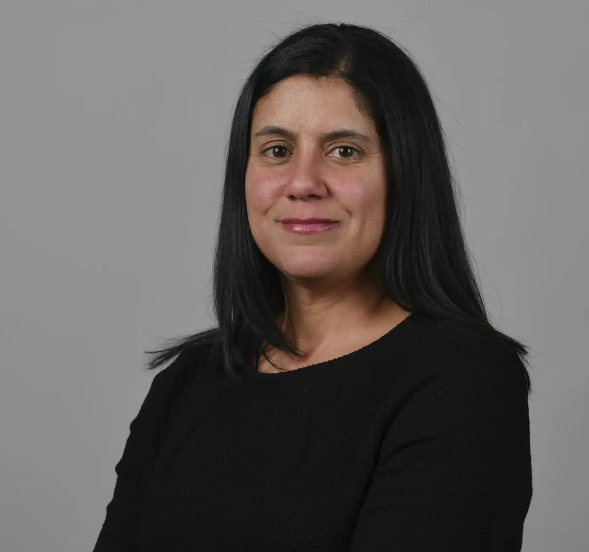The Indigenous Journalists Association (IJA) has named Dana Hedgpeth (Haliwa-Saponi Tribe of North Carolina) as the recipient of the 2025 IJA-Medill Milestone Achievement Award.

This prestigious honor celebrates individuals whose work exemplifies the mission of the IJA—highlighting the powerful role of Indigenous voices in journalism and recognizing trailblazers whose contributions have shaped the field. The award honors past achievements while inspiring future generations of Indigenous journalists to pursue excellence in their craft.
Hedgpeth was selected by IJA’s special awards committee in recognition of her 26-year career at The Washington Post, where she has reported extensively on Native American communities. Her work has illuminated untold stories and uncovered deeply buried histories, helping to bring long-overdue visibility and truth to the forefront of public discourse.
“Dana’s investigative work has been critical to raising awareness of long overlooked tragedies the Indigenous community has suffered,” said Medill Dean Charles Whitaker. “Medill is honored to recognize her with this award, and we hope that it further calls attention to the critically importance of journalists.”
In addition to her reporting, Hedgpeth has served as a mentor to emerging journalists and storytellers, demonstrating thoughtful approaches to interviewing tribal leaders, elders, and community members—many of whom may be hesitant to engage with mainstream media. Her dedication to respectful, accurate, and empowering storytelling continues to set a high standard for the industry.
Hedgpeth recently completed a year-long investigative series with a team at The Washington Post that exposed the deaths of more than 3,100 Native students at U.S. boarding schools—more than triple the number previously acknowledged by the federal government. The series also included a powerful report on the widespread sexual abuse of Native children within these institutions.
For this work, her team received the 2025 Dori J. Maynard Justice Award from Marquette University. Judges praised the series as “haunting, beautifully done, searing… important, with stunning findings and writing—a series that stays with you forever.” The reporting was also named a finalist for the Anthony Shadid Award for Journalism Ethics.
Throughout her 26-year career at The Washington Post, Hedgpeth has consistently brought Indigenous stories to the forefront—many of which have been long overlooked or ignored by mainstream media. Among her most impactful pieces are an in-depth look at the true story behind the first Thanksgiving with the Wampanoag people, and a revealing report on one of the deadliest massacres of Native Americans—an event largely absent from public knowledge.
Beyond Native affairs, Hedgpeth has reported on a wide range of topics, including the Washington, D.C. region’s transportation system, economy, local government, courts and crime, Pentagon spending, and even offbeat animal stories. In 2008, she and a colleague were awarded the prestigious Gerald Loeb Award in the Best Writing category for an investigative piece on government contracting. She remains the only Native American journalist in The Washington Post’s approximately 900-person newsroom.
A graduate of the University of Maryland at College Park, Hedgpeth earned degrees in journalism and economics and was recognized as a top scholar in the College of Journalism. She is a longtime member of the Indigenous Journalists Association (IJA), where she has served on the board of directors and helped guide its scholarship committee. She has mentored emerging Native journalists through the Freedom Forum and other organizations.
Dana lives in Washington, D.C., with her husband and their two daughters. In her free time, she enjoys participating in competitive powwow dancing with her girls, dancing as a jingle dress dancer.
More Stories Like This
Native News Weekly (August 25, 2024): D.C. BriefsNative Bidaské: The Illusion of Freedom and the Myth of America 250, Leonard Peltier Speaks Out
Monday Morning (March 2, 2026): Articles You May Have Missed This Past Weekend
Native News Weekly (March 1, 2026): D.C. Briefs
Scope Narrowed, Report Withheld: Questions Mount Over Michigan Boarding School Study
Help us defend tribal sovereignty.
At Native News Online, our mission is rooted in telling the stories that strengthen sovereignty and uplift Indigenous voices — not just at year’s end, but every single day.
Because of your generosity last year, we were able to keep our reporters on the ground in tribal communities, at national gatherings and in the halls of Congress — covering the issues that matter most to Indian Country: sovereignty, culture, education, health and economic opportunity.
That support sustained us through a tough year in 2025. Now, as we look to the year ahead, we need your help right now to ensure warrior journalism remains strong — reporting that defends tribal sovereignty, amplifies Native truth, and holds power accountable.
 The stakes couldn't be higher. Your support keeps Native voices heard, Native stories told and Native sovereignty defended.
The stakes couldn't be higher. Your support keeps Native voices heard, Native stories told and Native sovereignty defended.
Stand with Warrior Journalism today.
Levi Rickert (Potawatomi), Editor & Publisher


